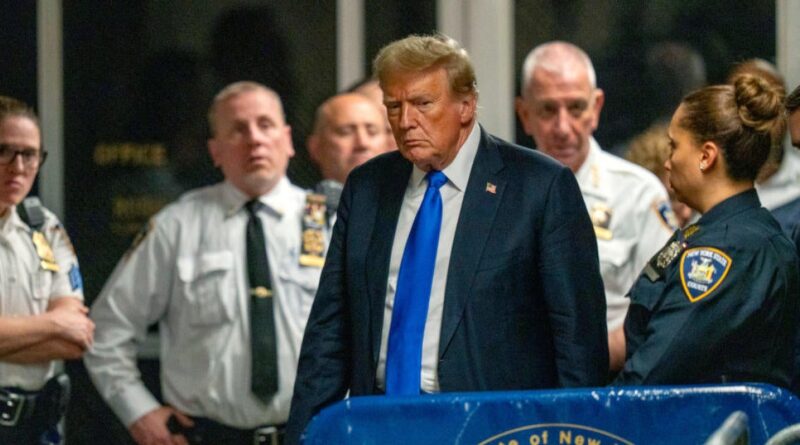New York’s highest court won’t stop Trump’s sentencing as prosecutors urge Supreme Court to stay out of fight
The highest court in New York said Thursday it would not prevent the sentencing of President-elect Donald Trump for his crimes, currently scheduled for Friday.
A deputy clerk for Judge Jenny Rivera wrote in a two-sentence letter to Trump’s lawyer, Todd Blanche, that the judge declined to intervene.
Trump was convicted last year on 34 felony counts of falsifying business records in the so-called “hush money” case.
The incoming president has also sought an emergency reprieve from the U.S. Supreme Court, claiming on Wednesday in a filing that evidence shown at trial violated his constitutional rights to presidential immunity. Justice Sonia Sotomayor, who oversees requests for emergency relief arising from the 2nd Circuit, ordered Manhattan prosecutors to respond by Thursday morning.
New York prosecutors have told multiple judges this week that they don’t believe sentencing should be delayed.
“Notwithstanding defendant’s past and upcoming service as President, his history, character, and condition — and especially his open disregard for the justice system — do not support dismissal,” Manhattan District Attorney Alvin Bragg’s lawyers wrote in a New York filing Thursday.
Prosecutors also urged the U.S. Supreme Court on Thursday against intervention in the case.
“Defendant makes the unprecedented claim that the temporary presidential immunity he will possess in the future fully immunizes him now, weeks before he even takes the oath of office, from all state-court criminal process,” they wrote. “This extraordinary immunity claim is unsupported by any decision from any court. It is axiomatic that there is only one President at a time.”
Trump was found guilty of 34 felony counts for falsifying business records related to a so-called “hush money” payment to an adult film star just before the 2016 presidential election. That payment was wired before his first presidency, but a unanimous jury concluded that Trump, while president, authorized a scheme to falsify the related records. Trump’s lawyers have argued it was unconstitutional for the jury to be shown evidence and testimony from the years when Trump was in office.
Trump’s two-pronged effort comes after a lower-level New York appeals court on Tuesday rejected his latest effort to postpone his sentencing. His lawyers say a president’s immunity from criminal proceedings extends to the transition period between election and the oath of office.
In their submission to the Supreme Court, Trump’s lawyers argued that the justices should step in and pause his sentencing “to prevent grave injustice and harm to the institution of the presidency and the operations of the federal government.” During the transition, they wrote, the president-elect is engaging in the “extraordinarily demanding task of preparing to assume the executive power of the United States.”
The winding and at times wide-ranging investigation that led to Trump’s 2023 indictment began during his first presidency, in 2018. The case has already found its way to the Supreme Court, which ruled in July 2020 that the Manhattan district attorney had the power to subpoena Trump’s tax records. Trump fought against their release until 2021, when the Supreme Court rejected his subsequent efforts to shield the financial records from prosecutors.
Trump was originally scheduled to be sentenced last July, but the proceedings were postponed after the Supreme Court issued a landmark decision finding former presidents cannot be prosecuted for official actions taken while in office.
Trump’s sentencing was then set for September, but was pushed back again to avoid interfering with the presidential campaign. After Trump was elected to a second term in early November, a Nov. 26 hearing was then delayed as the president-elect and Manhattan prosecutors argued over how to proceed with the case.
New York Justice Juan Merchan last week scheduled the sentencing for Friday, just 10 days before Trump’s inauguration.

